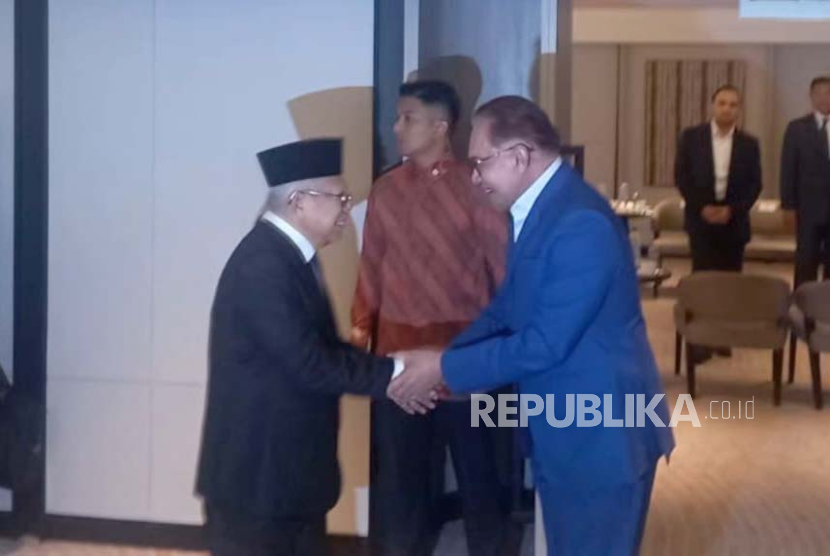REPUBLIKA.CO.ID, KUCHING -- Vice President K.H. Ma'ruf Amin called sharia economics a counterbalance to global economic inequality due to competition and the growing economic system of capitalism. Therefore, Vice President Ma'ruf continues to push for sharia economic and financial development globally. This was stated while attending the opening of the Global Muslim Business Forum in Kuching, Malaysia, on Tuesday (28/11/2023).
“The principles of sharia economics that promote justice, inclusion, universality, prosperity, and safeguarding the sustainability of the environment are a counterbalance and solution that we must continue to voice in the global community,” said Kiai Ma'ruf.
According to him, Sharia economics and finance can be a solution amid the challenges facing the world ranging from poverty, climate change, and various other crises. Speaking before a forum attended by Malaysian Prime Minister Anwar Ibrahim, Kiai Ma'ruf also called sharia economics and finance as a new economic growth opportunity. This is because the number of global Muslims continues to grow, followed by ever-increasing spending and encouraging sharia-based economic activities.
“(However) the pace of economic and financial development of sharia requires strong support from clerics and the state,” Kiai Ma'ruf said.
Therefore, he invited all the leaders of the countries present to expand and strengthen cooperation in realizing inclusive Sharia economic growth. He said the need for cooperation and collaboration of more countries in the development of sharia economy and finance.
“In the midst of an increasingly polarized world, halal businesses must be able to unite Muslim countries in economic and trade activities that are able to address diverse global challenges and increase the prosperity of Muslims in different parts of the world,” he said.
He also invited Muslim countries to unite their vision and mission on the direction of developing the global halal industry in the future. Focus is needed on increasing mutual investment, and building integrated halal ecosystem hubs in different regions to boost the region's economic growth and ASEAN as a pioneer.
Indonesia itself, says Kiai Ma'ruf, has made Sharia economics and finance one of the national economic systems. This is evidenced by Indonesia's commitment to boost the sharia economy, one of them through the establishment of the National Committee on Sharia Economics and Finance (KNEKS) at the center and the Regional Committee on Sharia Economics and Finance or KDEKS at the regional level. In addition, the Indonesian government has also strengthened the regulation of sharia economic and financial development, including in the halal product guarantee sector and sharia banking.
“The seriousness of the Indonesian Government is also realized by including the themes and programs of sharia economy in the medium and long-term development planning documents,” he said.


